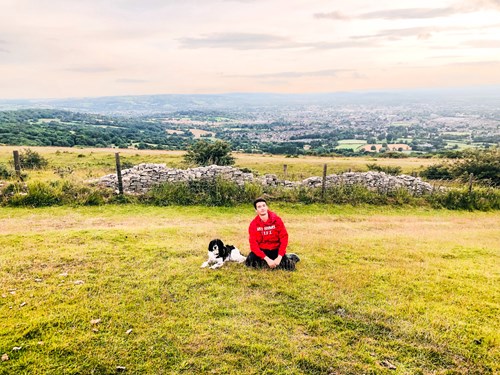Writing your Personal Statement is often the most dreaded part of the application process when looking at your options for higher education.
Cramming your skills, experiences and ambitions into 4,000 characters (not words!) can seem like an impossible task, and at the same time you might have no idea what sort of things you should include.
As a result, we thought we’d ask our own students at UCFB to give their tips and tricks for how best to approach the writing process.
For more advice on how to tackle your Personal Statement, join our webinar session on Tuesday 1st December, which is specifically designed to help students break down the daunting task.
Luc Dinwiddy, who studies BA (Hons) Football and Finance at UCFB, has given three rules that helped him through the writing process.

1. The A-B-C (activity, benefit, course) Technique. This is a useful technique which was often recommended to me. It helped me turn my personal statement from a list of skills to a well structured statement.
What this involves is writing about an activity you’ve done and building upon this with how it benefitted you and the specific advantages it brings for your course:
- The activity is – what you did
- The benefit is – how you benefited from that activity (what skill-sets it improved).
- The course is – how it relates to the course that you would like to apply for.
For example, you may want to study a business-related course and the 'activity' may be that you studied business studies at your school/college.
The 'benefit' may be that studying business studies allowed you to develop your analysis skills and your decision-making skills.
The 'course' may be that during your studies, you had an assignment which was to find out how business decisions impact shareholders, which improved your research and evaluation skills in order to come to a justified conclusion. The experience that I gained from this research would help me in my degree course.
2. The Structure. There isn't one right way to write a personal statement, but this is typically one of the strongest ways:
- Have a clear introduction which explains why you want to study the course.
- Then have around 65% of the content focusing on your academic achievements and why they will help you to study your course.
- Have around 25% on your extracurricular activities to explain why you are suitable for your course and what you do outside of school/college.
- Have a clear conclusion that summarises the key points you have made.
3. Have other people read through your personal statement. When you have been looking at the same thing for a long period of time you tend to miss mistakes that you have in your statement, so having a fresh pair of eyes look at it can be extremely useful.
It is also useful to send it to friends, family, and teachers to look at. This is because each will have a different perspective on you and your personal statement, so getting an array of opinions will be very beneficial.
Sian Hills, BA (Hons) Sports Business and Coaching student

Your personal statement is one of the most (if not THE most) important aspect of the application process. It’s important to make sure your personality and experience, outside of the classroom, shines through and to make your application stands out from the rest.
Any experiences or qualifications that are particularly unique are great to include as they show how you are committed to things outside of your studies and that you have built a wide variety of skills.
I’d advise you to steer away from using quotes or generic statements, instead make it bold and most importantly make it yours. Remember to stay within the character limit, so try to avoid waffling, as this limits the amount of extra qualities you can demonstrate you have. Be clear with the points you make too.
Always be positive, never doubt yourself. The institution you’re applying to want to know everything good about you, so don’t tell them you’re bad at something. Instead, tell them how you’re developing that area to improve yourself.
Lastly, make sure you link how your experiences can help with the course you have chosen to study. Proof reading at the end is vital, so make sure your grammar and spelling is correct before you submit your personal statement.
Good Luck!
Click here to read our handy guide on preparing your personal statement.
The UCAS deadline is Friday 15th January, click here to learn more about the application process.
















